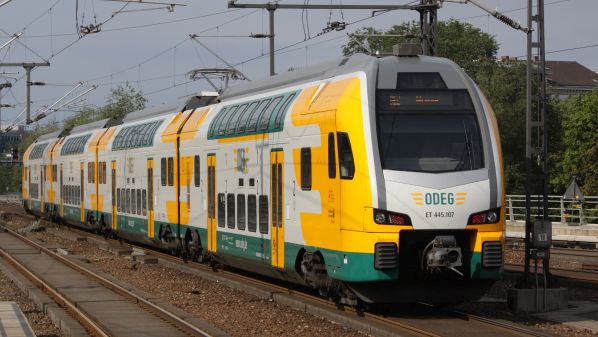THE German Federal Court of Justice has ruled against DB Networks in a long-running dispute with train operating company East German Railway (Odeg) about liability for delays caused by infrastructure faults. The court ruled that DB Networks is not only obliged to make agreed train paths available but must do this at the time specified in the timetable.
What sounds like a semantic argument has real-world economic effects as train operating companies operating concession contracts for local transport authorities are normally required to agree punctuality and other quality standards with financial penalties for non-performance.
Despite penalising train operators who cause delays, DB Networks argued that it was only required to make train paths available at some point rather than at the time specified in the timetable that it produces! As a result, DB Networks also argued that train operators, presumably including DB companies, were not in a position to sign contracts with transport operators that involved any punctuality performance criteria. DB Networks also tried to amend its network access conditions to remove responsibility for the impact of infrastructure deficiencies. However, the Federal Network Agency refused the proposed changes.
For German train operators, penalties for late running and cancellations can represent the difference between operating profitably or not. Private rail operator industry body Mofair estimates that a significant part - in some cases up to 80% - of delays and disruption arise from inadequate infrastructure such as defective switches, level crossing failures, temporary speed restrictions and poorly managed construction activity. With these performance failures outside of the operators’ control, the lack of financial accountability from DB Networks could result in operators becoming insolvent or losing contracts.
Several other ongoing legal proceedings by passenger and freight transport companies against DB Networks are indirectly affected by the ruling; the lower courts will now have to decide on the specific amounts of liability in each case.
“This is a good decision for rail transport in Germany,” says Mr Jost Knebel, Mofair vice-president and head of Netinera Germany, part owner of the plaintiff Odeg. “Train operators do everything we can to get our passengers to their destination on time. It is now clear that DB Networks is obliged to create appropriate conditions for this. "
Mofair believes the ruling will force DB Networks to focus its processes much more and improve the quality of what it does, although Mofair warns that DB Networks should not be allowed to include compensation payments as an expense in future track access fee regulation as this would transfer the financial responsibility for poor performance back to the transport authorities funding the trains in the first place.
“DB Networks now has to adapt its strategy and tackle quality defects more consistently,” says Mr Christian Schreyer, Mofair president and president and CEO of Transdev North and Central Europe. “We expect further support from politicians, including a further clarification in the Railway Regulation Act.”

